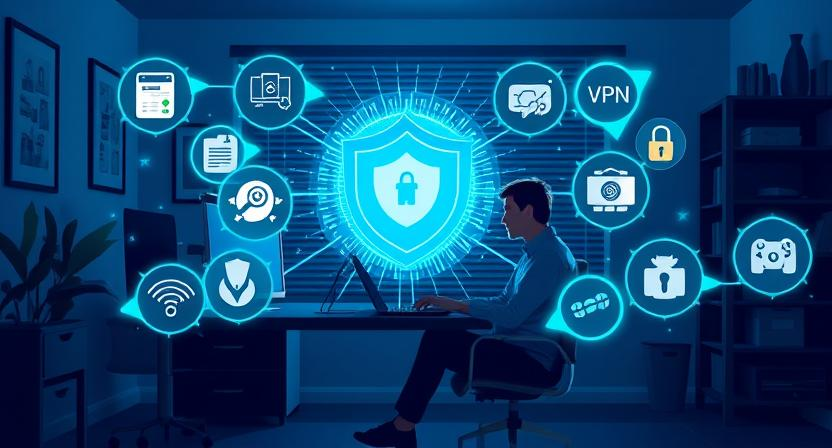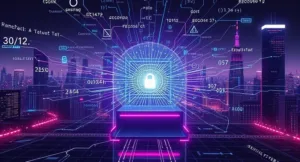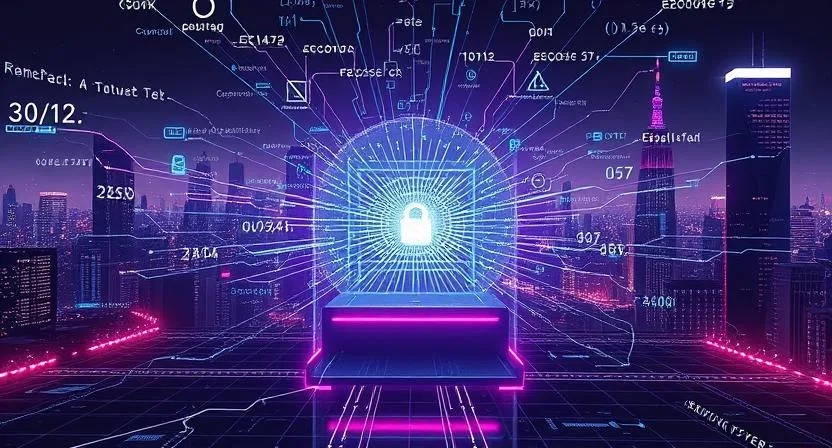Every size of company is under threat. Remote work has evolved into a must for contemporary companies seeking talent and developing company continuity strategies in the meantime. In reaction to the COVID-19 (coronavirus) pandemic, corporations worldwide sent hundreds of thousands of information workers home in spring 2020, ensuring business continuity.
Remote work lacks office-like security, making information security problematic. An individual working at the workplace is behind layers of preventative security measures. Although not flawless, making a security error while at the workplace is more difficult. When computers leave the perimeter and people work remotely, new business risks arise and greater protection is needed.
Digital Security While Working Remotely

- Steer clear of public Wi-Fi; if needed, utilize personal hotspots or any method of web connection encryption.
Public Wi-Fi should be avoided if at all feasible since it presents major security risk. You have two main issues if you must access the internet from a public Wi-Fi spot. First, that network is accessible to others, thus threat actors may hit your machine from across the room without a firewall. Second, on the current network or any other public network your data crosses between you and your office, interested parties can trace your traffic.You should be able to encrypt your traffic and safeguard your PC.
Personal hotspots from specialized devices or phones are good options. Use a hotspot to prevent someone on the same public Wi-Fi from hacking your unencrypted web traffic. You can use your phone to build a private Wi-Fi network with most major carriers for a little fee. It will contradict your data, but the expense is small compared to the harm a massive attack on your business’s systems or computers may cause. Why not utilize the hot spot to avoid public Wi-Fi if your business offers mobile service? In many situations, 4G or 5G coverage is almost as fast as your home network connection.
Many remote access programs call for a VPN. VPNs may guard your traffic and offer a flexible connection to link to many services (web pages, email, a SQL server, etc.). Remember that not all VPNs are worth the investment; hence, it is advisable to review your must-haves before selecting a VPN technology. VPN services offered for privacy only safeguard the data to and from the VPN provider, not to the destination hence are not appropriate for safeguarding remote access.
Finally, for particular use scenarios, you may also create encrypted remote connections into another person server or a remote desktop. Many of these connection types—RDP, HTTPS, SSH—include encryption as part of their service directive and do not call for another VPN or another encryption tool to protect the data in-transit.
- Keep work data on work computers.
Considering doing a few email chores at home before bed? This might be very OK if you follow safety tips include utilizing your work computer, safe Wi-Fi, VPN, encrypted data, antivirus, and endpoint protection. Having said that, if your business computer is in another room or you neglected your charger at the office, it might be easy to use your home computer. You as well as the business run a risk here.
If you work for a firm with a skilled IT team, you may observe them install updates, run antivirus checks, block risky websites, etc. You risk not employing work-related computer processes at home. Your company may also be able to fund more advanced, personally relevant technology measures. Business data on your PC is vulnerable to third-party access without them running in the background. Adding a personal computer to a business network, even remotely, puts the network and oneself at risk, admitting accountability for major corporate losses due to policy violations, practices, or both.
Working online and without downloading or syncing emails or files to a personal device if your firm provides a portal or remote access environment like Office 365 aids personal business on personal equipment. only use your work-issued laptop for business connected to your job. To reduce security threats, several businesses have really halted the “di minimus use” policy allowing workers to conduct personal business on work-owned assets.
- Block the Sight Lines.
If you are at a coffee shop, consider your sight lines. Should someone be behind you, they can view all you are typing. Moreover, someone with good observational abilities—such as a cybercrime—could simply monitor your activities and spot private information. And keep your gadgets with you; in the time it takes you to use a bathroom, a threat actor with a USB stick typing pre-programmed sequences at 1000 words per minute might easily compromise your device. Personally, this is something you should do while keying your ATM PIN as well.
- Encrypt Sensitive Data in Emails and on Your Device.
Emailing sensitive information is always going to carry some risk. A third party might view or intercept it. Encrypting the material you attach to an email will stop an inadvertent recipient from seeing it. In case of theft, also make sure your gadget is configured to have all saved data encrypted.
Physical Security While Working Remotely
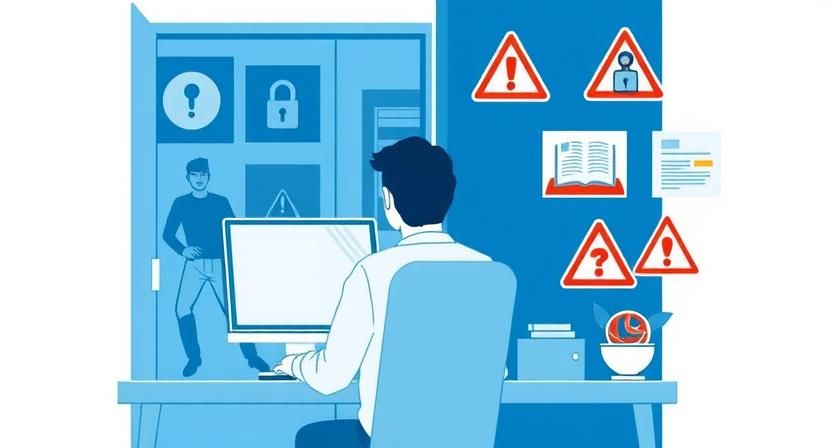
- Lock Your Doors.
Security 101: Taking your work computer home or working remotely (Remote work) puts private company data at risk. When you close your doors frequently, your home office becomes more secure. Once a buddy neglected to lock the door, his work computer vanished from his third-story walk-in. Avoid subjecting yourself to the stress of a stolen work computer or endangering your business by allowing its data to go wild.
In highly regulated sectors like healthcare, missing particular data might cause large fines. See #4 above on ensuring sure these devices are encrypted in order to transform a disaster (data compromise) to an annoyance (loss of the device, but no compromise.) Many states have breach disclosure rules wherein, should the data be encrypted, they are not applicable.
- Never Leave Your Devices or Laptop in the Car.
We counsel staff members and clients to never leave their business laptops or gadgets in a car. Keeping business computers and devices on your person whenever on the road is a smart practice. And the trunk of your automobile is not any safer. Criminals looking for their next victim might be observing the parking lot from a distance. Although temporarily making things a little simpler by stuffing valuables into the trunk, why take such a risk?
- Don’t Use Random Thumb Drives.
One of the traditional hacking methods is to toss many big thumb drives close to the business you intend to target. Unassuming employees have shockingly great odds of picking up the thumb drive and using it. Based on anecdotal evidence, one of our staff members conducted a test on this at a former company and found shockingly high percentage of employees actually opened the files on the disk BINGO pays if you are a hacker.
If you do not know where a thumb drive originated from, never use one; if you have inserted one into a system for whose safety you cannot honestly vouch for, do not keep using it.
- Use a USB Data Blocker when Charging Up at a Public Phone Charging Station.
A USB data blocker can prevent infection and data transfer when charging your phone on an unfamiliar USB connection. It connects to power without exposing data pins since USB protection links power leads but not data pins.
Formalizing Working from Home and Remote Work Policies
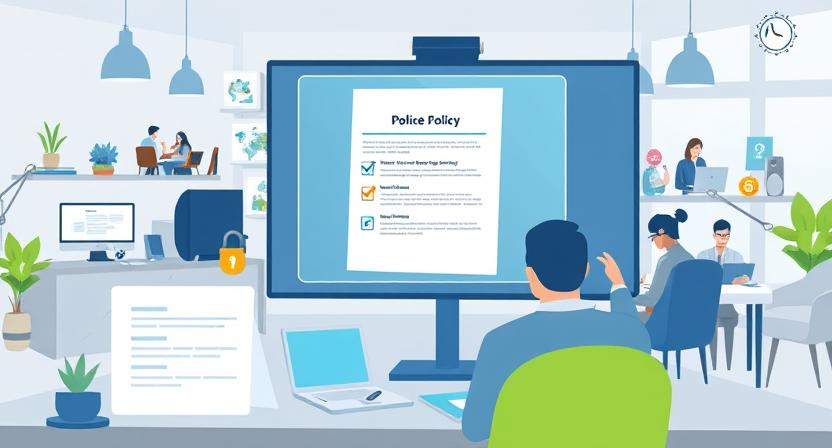
Although good policies and technology help, employees are a company’s biggest security risk. General work-from-home (Remote work) and remote computer and internet use restrictions can help;these rules can be implemented with both technological and administrative constraints.
These security awareness tools will let staff members, wherever they are working, operate securely with business tools and data. These work-from-home security regulations may be easily integrated into CISO and IT management employee and cybersecurity policies. Staff members should be taught on new security standards during regular security awareness seminars, especially when organizations hire new personnel.
Remote work
You can also check:

